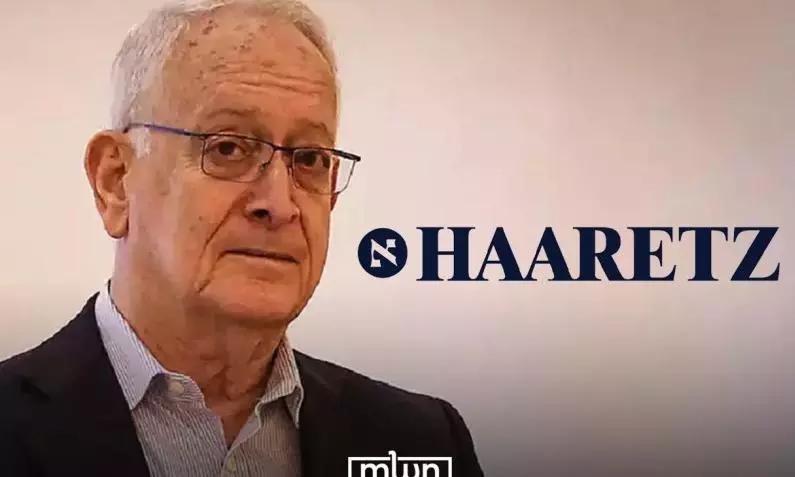
Israeli daily Haaretz faces Govt threat for calling Palestinians ‘freedom fighters'
text_fieldsThe Israeli government has escalated its criticism of Amos Schocken, publisher of Haaretz, following a recent speech in which he described Palestinian militants as "freedom fighters." Schocken’s comments, made at a London conference, have stirred a backlash from Israeli ministers, with some advocating for punitive measures against the news outlet.
Schocken’s remarks, which included criticism of Israel’s policies towards Palestinians and the government’s stance on settlements, drew condemnation from officials who view the characterisation of Palestinian militants as inflammatory.
"The Netanyahu government doesn't care about imposing a cruel apartheid regime on the Palestinian population," he told attendees.
"It dismisses the costs of both sides for defending the settlements while fighting the Palestinian freedom fighters, that Israel calls terrorists.
Responding to the outcry, Schocken later clarified that he does not endorse groups using violence or terrorism and that his remarks did not extend to Hamas. However, this clarification did not prevent Israel’s Communications Minister, Shlomo Karhi, from proposing actions against Haaretz.
Karhi's proposal outlines various restrictions, aiming to limit government involvement with the publication. The proposed measures suggest terminating existing government contracts with Haaretz, barring any future agreements, and halting advertisements from the Government Advertising Bureau, including statutory notices.
This marks the second attempt by Karhi to restrict Haaretz’s activities; a similar proposal was made in November 2023 when the minister accused the publication of undermining Israel's military operations in Gaza.
Justice Minister Yariv Levin also voiced his disapproval, urging Attorney General Gali Baharav-Miar to draft legislation penalising Israeli citizens advocating international sanctions against the country. Levin’s request includes the introduction of criminal penalties for actions that, in his view, compromise Israel's right to self-defence, with heightened consequences during wartime.
The government’s response reflects a growing tension within Israel’s political landscape, where left-leaning media, including Haaretz, often critique Prime Minister Benjamin Netanyahu's administration. Haaretz, known for its pro-Palestinian editorials, has been a longstanding target of right-wing politicians who accuse it of undermining national interests.
The proposed restrictions on Haaretz underscore the Netanyahu administration's hardline stance on dissent and signal potential shifts in the government's approach to domestic media that diverge from official perspectives.























